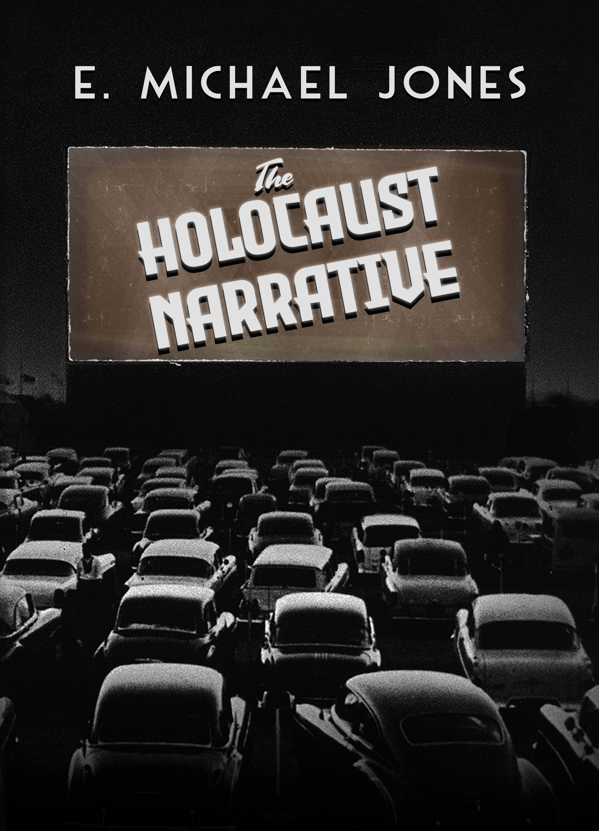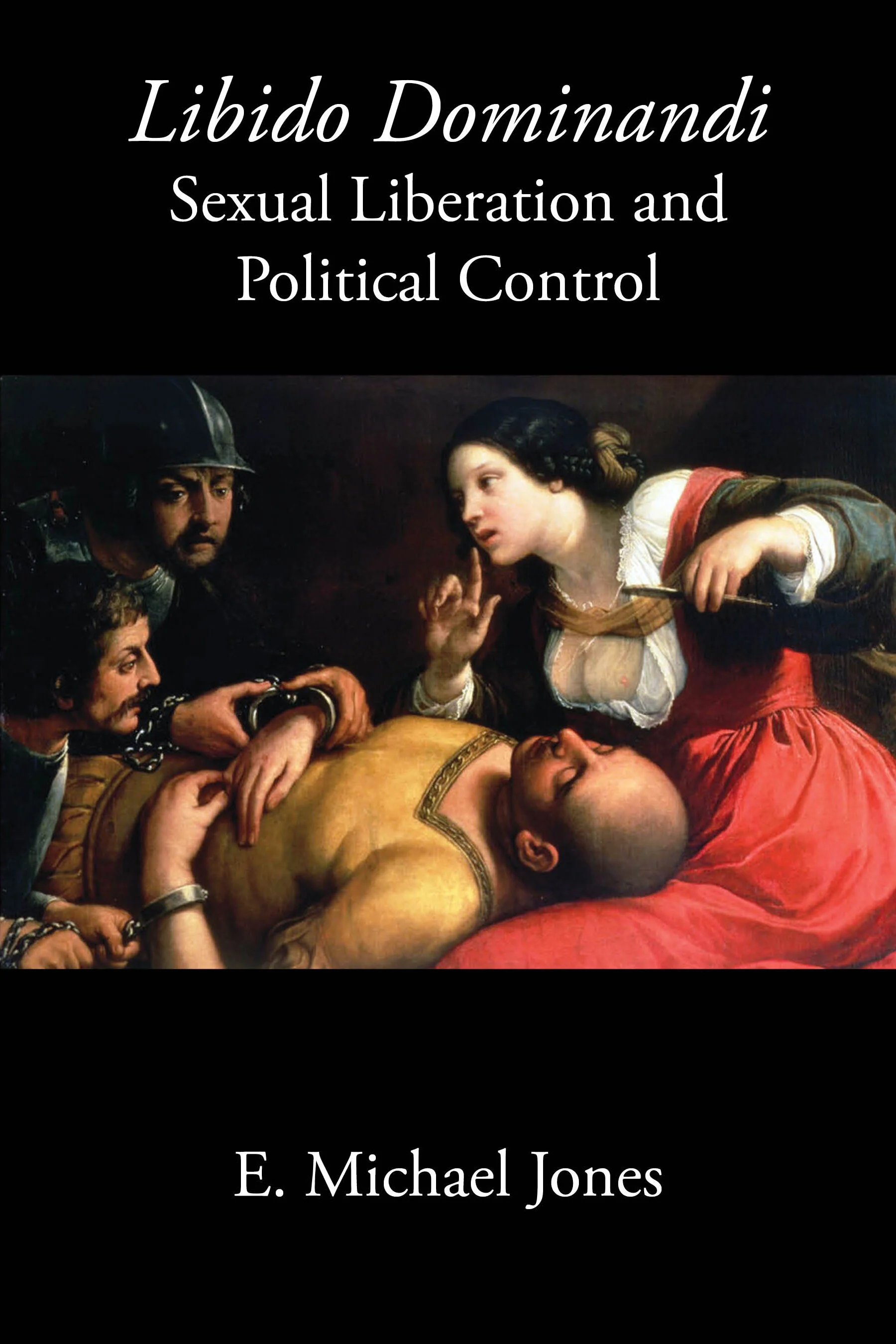The Jew Taboo
/“Truth may endure and be told and re-echoed,
But a lie can never be young but once.”[i]– G.K. Chesterton
“The truth does not change according to our ability to stomach it emotionally.”[ii]
– Flannery O’Connor
(A) THE JEW TABOO
What is the number one taboo subject today in Western society? At different times the average person would perhaps have singled out the topics of homosexuality; the relations between the different races; illegal immigration; even questions of sex generally. Today, to cast doubt upon global warming/climate change is almost out of bounds. However, the present writer’s nomination for number one goes, without a shadow of a doubt, to the Holocaust. Professor of Sociology, Dr. Robert Hepp, puts the matter very well indeed:
Occasional experiments that I have conducted in my seminars convince me that “Auschwitz”, the most well-known site of the Holocaust, is strictly ethnologically speaking one of the few taboo topics that our “taboo-free society” still preserves (see Franz Steiner, Taboo (1956), p. 20ff.). While they did not react at all to other stimulants, “enlightened” students who refused to accept any taboos at all, would react to a confrontation with “revisionist” texts about the gas chambers at Auschwitz in just as “elemental” a way (including comparable physiological symptoms) as members of primitive Polynesian tribes would react to an infringement of one of their taboos. The students were literally beside themselves and were neither prepared nor capable of soberly discussing the presented theses. For the sociologist this is a very important point because a society’s taboos reveal what it holds sacred. Taboos also reveal what the community fears...”[iii]
Here is another way of expressing it, and from a Jewish source:
There are worse, more dangerous endeavors. Ride a tiger, steal cubs from a she-bear, walk a high voltage wire. Doubting the Holocaust is slightly less perilous. The doubters found themselves invariably out of job, oftentimes in jail, rarely killed. This is the dogma-Mother-of-all-dogmas, and Jews, the priesthood of [the] New World, are attending to its pristine inviolability. Nowadays, one may openly doubt the Crucifixion and Resurrection or (maybe) challenge the founding myths of Israel. Yet the cult of the Holocaust retains a unique, court-enforced prohibition against any investigation that might cast a doubt on its sacred dogma. Dogmas have a way of attracting critical minds. And critical minds step forward, despite the inherent danger.[iv]
The Holocaust is not only at the head of the taboo subjects, but arguably a secular religion, concerning which no adverse comment at all is allowed. One can pour scorn on the Catholic Church and very little by way of criticism will be said. Mount an attack on Western civilization generally and the cognoscenti will likely praise you. Try saying that the value of a society should be judged in terms of how it treats the most vulnerable, those in the womb and the elderly and infirm, and you will be floored by the abortion crowd and the supporters of euthanasia. Both of the latter will very often include doctors of course, the very persons from whom you would expect support and assistance. And don’t expect the young people to line up behind you either. To take just one example, in the country of Ireland, supposedly known for its traditional values regarding issues of life, crowds of young women went out into the streets in 2018 to cheer the pro-abortion referendum result there. However, if you dare to say a single word casting the slightest doubt on any aspect of the Holocaust story, you will be immediately castigated as an irreparable anti-Semite and subjected in many countries to criminal sanctions, loss of employment, and social scorn.
Anne Frank
This is a serious matter. As Thomas Dalton explains, we cannot just move on and forget about the Holocaust debate:
We are not allowed to forget about it, even if we wanted to. Coverage of the Holocaust is standard fare in every school curriculum. Children the world over read The Diary of Anne Frank, Number the Stars, Waiting for Anya, Butterfly. Students learn about the gas chambers and the six million, about the Nazi atrocities. We watch Holocaust miniseries on television, Schindler’s List, and Night and Fog. We celebrate “Holocaust Education Week,” and we acknowledge January 27 each year as the “International Day of Commemoration” of Holocaust victims, as declared by the UN in 2005. School children collect six million pencils, or six million paperclips. We visit Holocaust museums. We take college courses (for full credit) from endowed chairs in Holocaust studies. This is not by accident. It is a deliberate plan, to make sure we “never forget.” And if we can never forget, then we should at least get the story straight.[v]
Writing about the Jews, both in relation to the Holocaust and other matters, has often been a problematic task. For example, when the names of those two great characters, Hilaire Belloc and G. K. Chesterton, are mentioned these days, this is always accompanied by a reference to their supposed “anti-Semitism.” Sadly, it is also the case that the crucial distinction to be made in relation to the Jews on the part of a Christian is often misunderstood. Anti-Semitism is a racial concept, in the sense of hatred of the Jews because of immutable and ineradicable racial characteristics. This is utterly wrong and something that has always been repudiated by the Church. However, it is necessary for a Christian, in view of the belief of that faith in the divinity of Jesus Christ, to be anti-Jewish in the sense of opposing beliefs and actions of Jews which operate as a consequence of the Jewish rejection of Christ. The present book firmly maintains that vital distinction. The Jews rejected the fundamental basis of the universe when they rejected the Messiah because as St. John writes about the Son of God at the beginning of the fourth Gospel, “In the beginning was the Logos, and the Logos was with God, and the Logos was God.” In rejecting the Second Person of the Trinity, the Jews reject order and redemption. The Jews reject their Messiah and turn instead to anti-Christian revolutionary movements. If Logos is indeed the fundamental basis of the universe, then the logos of practical reason known as morality should determine human behavior. This truth was lost on the Jews who ran the Manhattan Project, because the Jewish revolutionary spirit, manifested as Communism at the time, was in fundamental rebellion against the order of the universe that Werner Heisenberg discovered by reading Greek to determine whether to create an atomic bomb.[vi]
This enmity to Logos and to Christ is present in the historical message of the late Talmudic evidence. This is noted by the Jewish scholar Peter Schäfer:
They ridicule Jesus’ birth from a virgin, as maintained by the Gospels of Matthew and Luke, and they contest fervently the claim that Jesus is the Messiah and the Son of God. Most remarkably, they counter the New Testament Passion story with its message of the Jews’ guilt and shame as Christ killers. Instead, they reverse it completely: yes, they maintain, we accept responsibility for it, but there is no reason to feel ashamed because we rightfully executed a blasphemer and idolater. Jesus deserved death, and he got what he deserved. Accordingly, they subvert the Christian idea of Jesus’ resurrection by having him punished forever in hell and by making clear that this fate awaits his followers as well, who believe in this impostor. There is no resurrection, they insist, not for him and not for his followers . . .[vii]
Schäfer goes on to say that the rabbis taught that Jesus was not born from a virgin, as his followers claimed, but out of wedlock, the son of a whore and her lover; that he entertained lewd sexual thoughts, but, when rebuked by his rabbi, he became apostate and established a new cult; he was convicted of sorcery and of enticing Israel into idolatry; that he was stoned to death and hanged on a tree, the punishment reserved for the worst criminals; and that his fate consists of sitting forever in boiling excrement.[viii]
This rejection of Logos has been a feature of Jewish history and has led directly to cultural subversion and collapse of the moral order:
Rabbi Louis Israel Newman points out how Jews have consistently supported revolutionary movements throughout history. Jews joined forces with heretics during the Albigensian crisis, the Hussite revolution, the Reformation, and at the birth of modern England. They joined forces with revolutionaries during the Enlightenment, the Russian Revolution and the Civil Rights Movement. We also see the conflict between the Church and Judaism working itself out at the birth of the Spanish Inquisition, the spread of the Polish empire and the Chmielnicki rebellion that began the break-up of that empire. Finally we see a Jewish presence in the rise of the American Empire.[ix]
It is generally accepted now that the Bolshevik Revolution in the Soviet Union was not primarily a Russian Revolution. On the contrary, it was led primarily by a non-Russian, Jewish ethnic minority that abhorred Russians and the Czar for their alleged anti-Semitism. The predominately Jewish nature of Communism and the Bolshevik Revolution has been endorsed by many Jews and Jewish publications. Of the latter, the Encyclopedia Judaica is a notable example:
The Communist movement and ideology played an important part in Jewish life, particularly in the 1920s, 1930s, and during and after World War II…Individual Jews played an important role in the early stages of Bolshevism and the Soviet regime…The great attraction of Communism among Russian, and later also, Western Jewry emerged only with the establishment of the Soviet regime in Russia... Communist trends became widespread in virtually all Jewish communities.[x]
Of the latter, a useful authority is Leon Trotsky’s book Stalin, written in exile, which attempted to show that Stalin had played only an insignificant role in the early days of the Communist takeover.
To illustrate his point, Trotsky reproduced a postcard depicting the six leaders of the revolution. These leaders were: 1) Vladimir Lenin (who was at least one-quarter Jewish, spoke Yiddish in his home, and was married to a Jewess); 2) Trotsky (real Jewish name: Lev Bronstein); 3) Zinoviev (real Jewish name: Hirsch Apfelbaum); 4) Lunacharsky (a Gentile); 5) Kamenov (real Jewish name: Rosenfeld); and 6) Sverdlov (Jewish). Thus, according to Trotsky, five of the six leaders of the Communist takeover of the Soviet Union were Jewish.[xi]
John Wear concludes his wide-ranging examination of this question by drawing on another Jewish celebrity from a more recent time:
Communism and the Bolshevik Revolution in Russia have clearly been led by a Jewish ethnic minority. When chess genius Bobby Fischer was asked at a press conference in 1992 about his views on Communism, Fischer said, “Soviet Communism is basically a mask for Bolshevism which is a mask for Judaism.” Fischer correctly understood the overwhelming Jewish involvement in Communism and the Bolshevik Revolution.[xii]
Leon Trotsky
There is also much evidence supporting the validity claims that Jews controlled both the U.S. and Soviet governments, and the allegations of Jewish involvement in instigating World War II.[xiii] Finally, it is interesting to note that in 2009 Michael Oren, Israeli Ambassador to the United States, went so far as to say that the Holocaust is Israel’s raison d’être.[xiv]
(B) HOLOCAUST: THE TWO VIEWS
(1) Terminology
To turn to the question of the Holocaust, then, let us start with terminology. The word “Holocaust” comes from the Greek word for “sacrifice by fire” (holos = entirely; kaein = to burn). Another term, which is less commonly used, but which is preferred by Jews, is “Shoah” (Hebrew for “catastrophe”). If, as Nicholas Kollerstrom explains, “the word Holocaust means ‘fiery sacrifice’ as an old English word,”[xv] it cannot possibly mean, for example, death by gassing. In addition to meaning, the same writer points out that there is another limitation in respect of the actual use of the word in its present context:
[…] This is just an excerpt from the Nov 2023 Issue of Culture Wars magazine. To read the full article, please purchase a digital download of the magazine, or become a subscriber!
Articles:
Culture of Death Watch
The Case Against Electric Cars by Eric Brandt
Features
My Library Problem – and Ours by Dr. E. Michael Jones
The Jew Taboo by John Beaumont
Reviews
The Holocaust Narrative Unravels in Canada by Dr. E. Michael Jones
The Catcher in the Rye by Andrew Otero
(Endnotes)
[i] “An Election Echo” (1906), reprinted in Collected Poems of G. K. Chesterton (1932), pp. 159-160. [ii] Letter to “A” (Betty Hester), September 6, 1955, Sally Fitzgerald (ed), The Habit of Being: Letters of Flannery O'Connor (1979), p. 100. [iii] “Die Kampagne gegen Hellmut Diwald von 1978/79 – Zweiter Teil: ‘Richtigstellungen,’” in Rolf-Josef Eibicht (ed.), Hellmut Diwald: Sein Vermächtnis für Deutschland. Sein Mut zur Geschichte (1994), p. 140. [iv] Israel Shamir, “Kamikaze from California,” The Unz Review, Sept. 10, 2018, https://www.unz.com/ishamir/kamikaze-from-california/?highlight=faurisson. [v] Thomas Dalton, Debating the Holocaust: A New Look at Both Sides (4th edition, 2020), pp. 15-16. [vi] E. Michael Jones, “Oppenheimer: Applied Jewish Science,” Culture Wars, October 2023, Vol. 42, No. 10; E. Michael Jones, Logos Rising: A History of Ultimate Reality (2020), pp. 608-610; Armin Hermann, Werner Heisenberg, 1901-1976 (1976), p. 11. [vii] Peter Schäfer, Jesus in the Talmud (2007), p. 9. [viii] Peter Schäfer, Jesus in the Talmud (2007), pp. 10-13. [ix] E. Michael Jones, The Jewish Revolutionary Spirit and its Impact on World History, Volume I (South Bend, IN: Fidelity Press, 2020, 2nd edition), pp. 23-24. See Louis Israel Newman, Jewish Influence on Christian Reform Movements (1925). See also Thomas Dalton, “The Jewish Hand in the World Wars, Part 1,” Inconvenient History (Vol. 5, No. 2, 2013), https://www.inconvenienthistory.com/5/2/3209; Thomas Dalton, “The Jewish Hand in the World Wars, Part 2,” Inconvenient History (Vol. 6, No. 2, 2014), https://www.inconvenienthistory.com/6/2/3294 . [x] Encyclopedia Judaica (1971), Vol. 5, pp. 792-793. [xi] John Wear, “Jewish Involvement in the Bolshevik Revolution,” Inconvenient History (Vol. 14, No. 4, 2022), https://www.inconvenienthistory.com/14/4/8205, citing Leon Trotsky, Stalin: An Appraisal of the Man and His Influence (1968). See also Mark Weber, “The Jewish Role in Bolshevik Revolution and Russia’s Early Soviet Regime,” The Journal of Historical Review (1994), http://www.ihr.org/jhr/v14/v14n1p-4_Weber.html. [xii] John Wear, “Jewish Involvement in the Bolshevik Revolution,” Inconvenient History (Vol. 14, No. 4, 2022), citing Frank Brady, Endgame: Bobby Fischer’s Remarkable Rise and Fall – From America’s Brightest Prodigy to the Edge of Madness (2011), p. 249. [xiii] John Wear, “Jewish Involvement in Instigating World War II,” Inconvenient History (Vol. 13, No. 4, 2021), https://www.inconvenienthistory.com/13/4/8093. [xiv] New Republic, October 6, 2009. [xv] Nicholas Kollerstrom, Breaking the Spell: The Holocaust, Myth and Reality (6th edition, 2023), p. 27. [xvi] Kollerstrom, Breaking the Spell, p. 28. [xvii] Kollerstrom, Breaking the Spell, pp. 28-29. [xviii] See Jürgen Graf, Hoax or Holocaust: The Arguments (1998), pp. 23-24. Thomas Dalton gives a slightly more detailed summary of the standard mainstream account in his Debating the Holocaust (2020), pp. 40-45. [xix] Nigel Jackson, “The Feast of MisNaming,” Inconvenient History (Vol. 6, No. 2, 2014), https://www.inconvenienthistory.com/6/2/3292. [xx] Nigel Jackson, “The Feast of MisNaming,” Inconvenient History (Vol. 6, No. 2, 2014), https://www.inconvenienthistory.com/6/2/3292. [xxi] Thomas Dalton, The Holocaust: An Introduction (2016), p. 7. [xxii] Dalton, Debating the Holocaust, p. 11. Dalton explains that unlike the mainstream view, revisionism resists a general characterization, but that there is a kind of core of revisionism today. [xxiii] Dalton, Debating the Holocaust, pp. 22-23. [xxiv] See Debating the Holocaust, p. 40. [xxv] Dalton, Debating the Holocaust, pp. 27-28. [xxvi] See Nigel Jackson, “The Denial of ‘Holocaust Denial’: The Feast of Misnaming,” Inconvenient History (Vol. 6, No. 2, 2014), https://www.inconvenienthistory.com/6/2/3292. [xxvii] Dalton, Debating the Holocaust, p. 23. [xxviii] See Barbara Kulaszka, “Criminal Prosecution of ‘Holocaust Denial’,” in Barbara Kulaszka (ed), Did Six Million Really Die? (1992), p. 16, where she shows that if the term “holocaust denial” is taken literally, then many of the most prominent mainstream holocaust writers and agencies that do not accept all of the mainstream claims would seem themselves to be “deniers”! Two notable examples would be Gerard Reitlinger and Raul Hilberg, both of whom counted far fewer than six million deaths. [xxix] Dalton, Debating the Holocaust, p. 23. [xxx] Dalton, Debating the Holocaust, pp. 23-24. [xxxi] Nigel Jackson, “The Feast of MisNaming,” Inconvenient History (Vol. 6, No. 2, 2014), https://www.inconvenienthistory.com/6/2/3292. [xxxii] Thomas Dalton, Holocaust Revisionism in 60 Seconds, p. 1, https://holocausthandbooks.com/dl/HRin60Seconds.pdf. [xxxiii] See the immense study by Dr. E. Michael Jones, The Jewish Revolutionary Spirit and its Impact on World History (3 volumes, 2020). [xxxiv] See Alyssa Rangel, “Walt Disney and the Jews,” Culture Wars, June 2022, pp. 6-35, 45. [xxxv] See Jones, The Jewish Revolutionary Spirit, Volume III, pp. 443-448; Eustace Mullins, “The ADL-FBI Conspiracy Exposed,” June 1979, https://archive.org/stream/adl-fbi-conspiracy-exposed-eustace-mullins_201903/adl-fbi-conspiracy-exposed-eustace-mullins_djvu.txt. [xxxvi] Temple Israel, “Abortion is a Jewish Value, Rabbi Simons, 5/13/22,” YouTube, May 13, 2022, https://www.youtube.com/watch?v=FuB1k8IxqGA&t=2s. [xxxvii] On this see the approval put on it by Nathan Abrams, “Triple-exthnics: Nathan Abrams on Jews in the American porn industry,” Jewish Quarterly (Winter 2004), http://www.jewishquarterly.org/issuearchive/articled325.html?articleid=38. [xxxviii] See Amy Dean’s praise for the Jewish role in “How Jews Brought America to the Tipping Point on Marriage Equality: Lessons for the Next Social Justice Issues” Tikkun, March 10, 2004, https://www.tikkun.org/how-jews-brought-america-to-the-tipping-point-on-marriage-equality-lessons-for-the-next-social-justice-issues/. [xxxix] Dalton, Debating the Holocaust, p. 23. [xl] Dalton, Debating the Holocaust, p. 21. [xli] “My Answer to Shawn Johnson and Her Classmates,” AAARGH, http://aaargh.vho.org/engl/FaurisArch/RF990303.html. [xlii] “My Answers to Shawn Johnson and her Classmates,” AAARGH, March 3, 1999, http://aaargh. vho.org/engl/FaurisArch/RF990303.html. [xliii] Jung-Freud, “Holodolatry (Or Holocaust-Idolatry) Needs to be Countered with Holo-Correction and Holo-Context: Don’t Deny the Horrors of World War II but Correct the Falsehoods and Provide the Contexts,” The Unz Review, March 20, 2023. [xliv] Jung-Freud, “Holodolatry (Or Holocaust-Idolatry) Needs to be Countered with Holo-Correction and Holo-Context,” The Unz Review, March 20, 2023. [xlv] “In Pursuit of Anti-Semitism,” National Review, March 16, 1992. For Sobran’s collected writings on many subjects, see his excellent book, Subtracting Christianity (2015).









